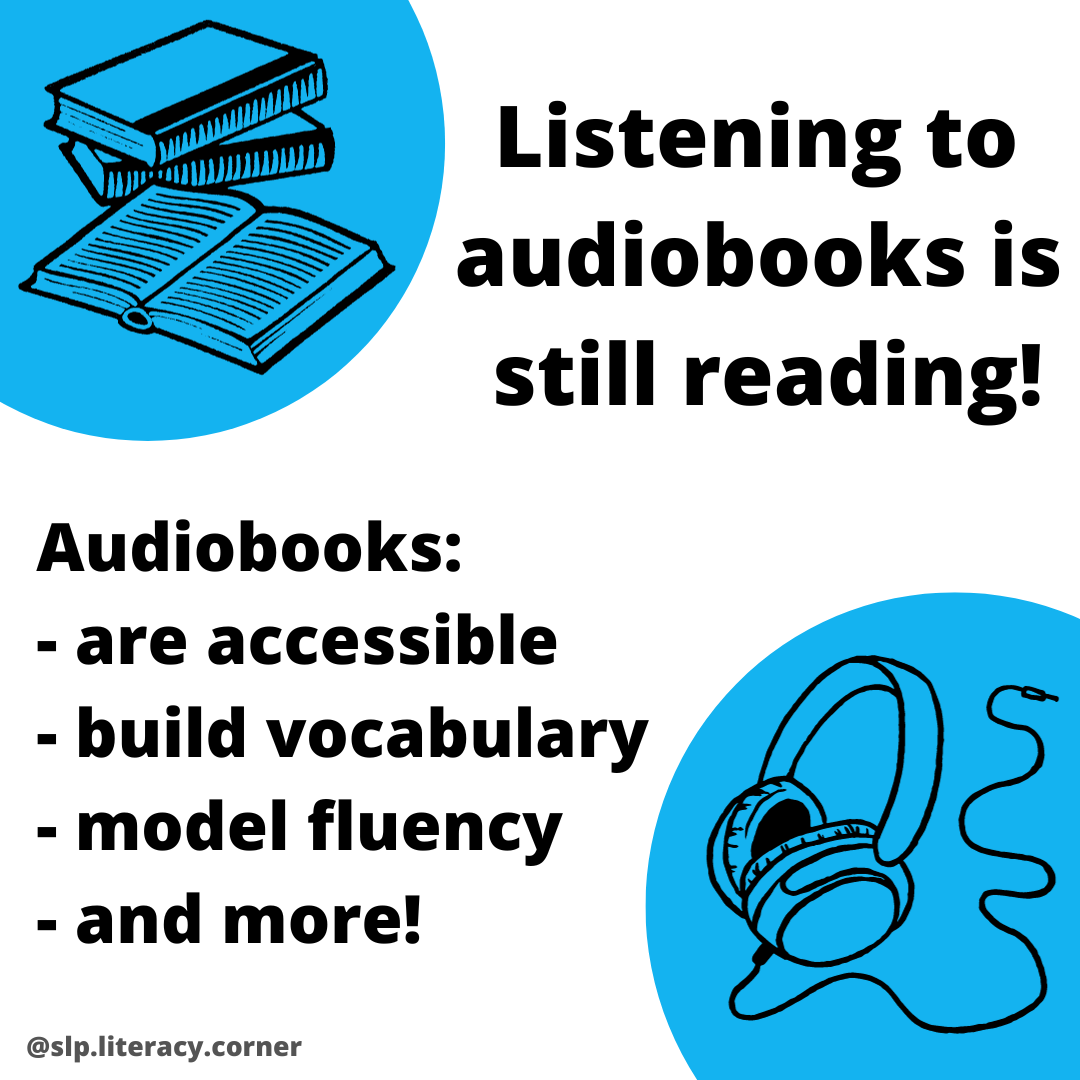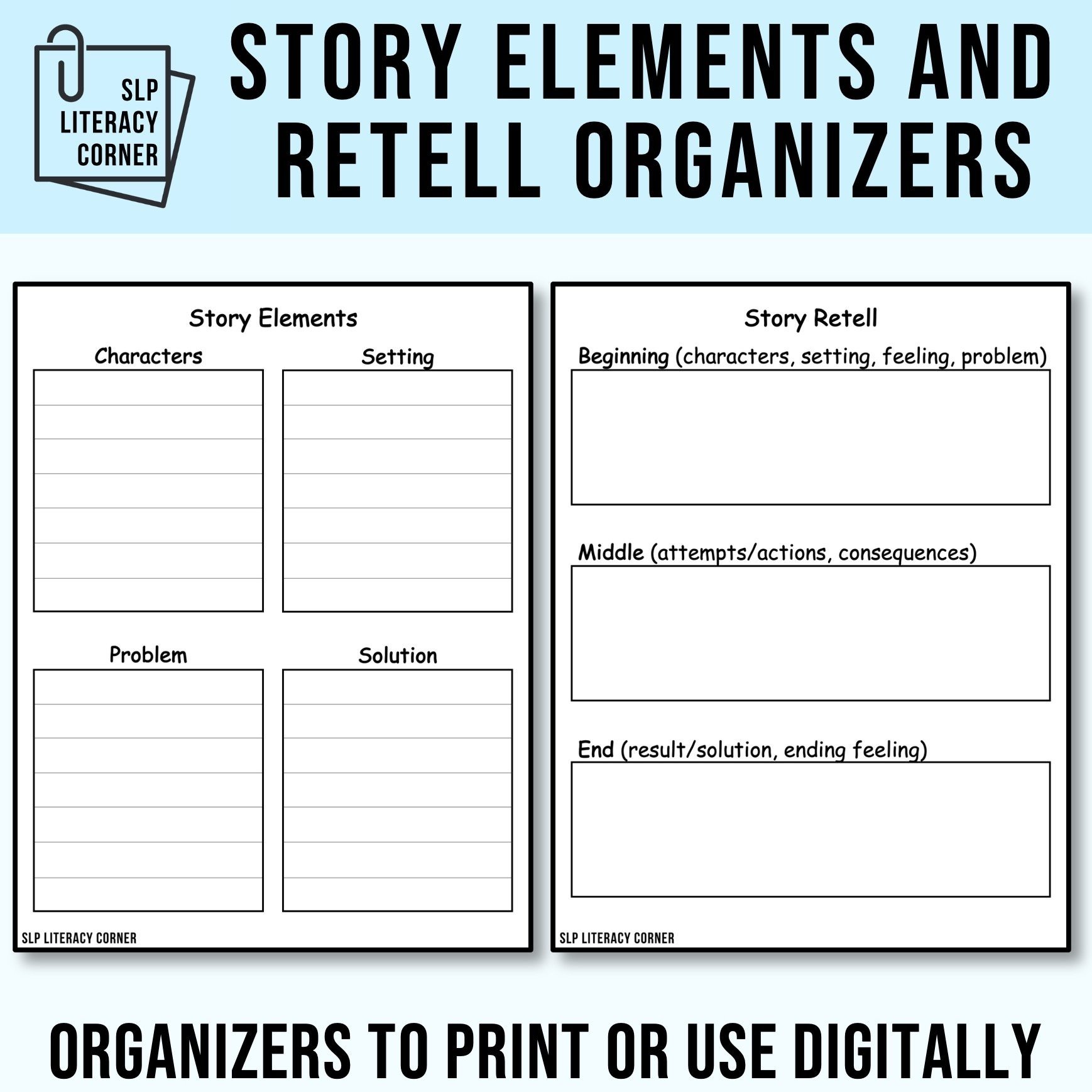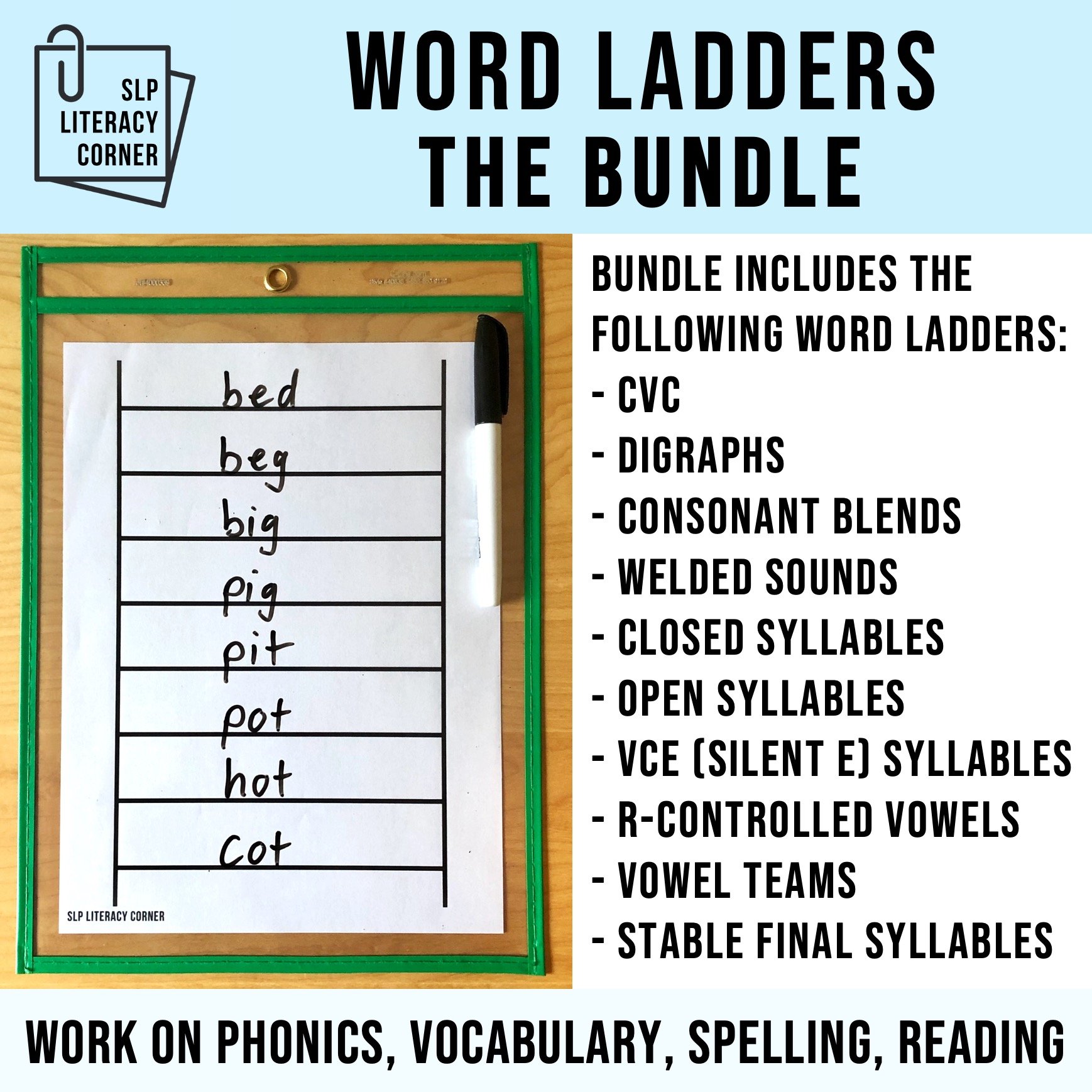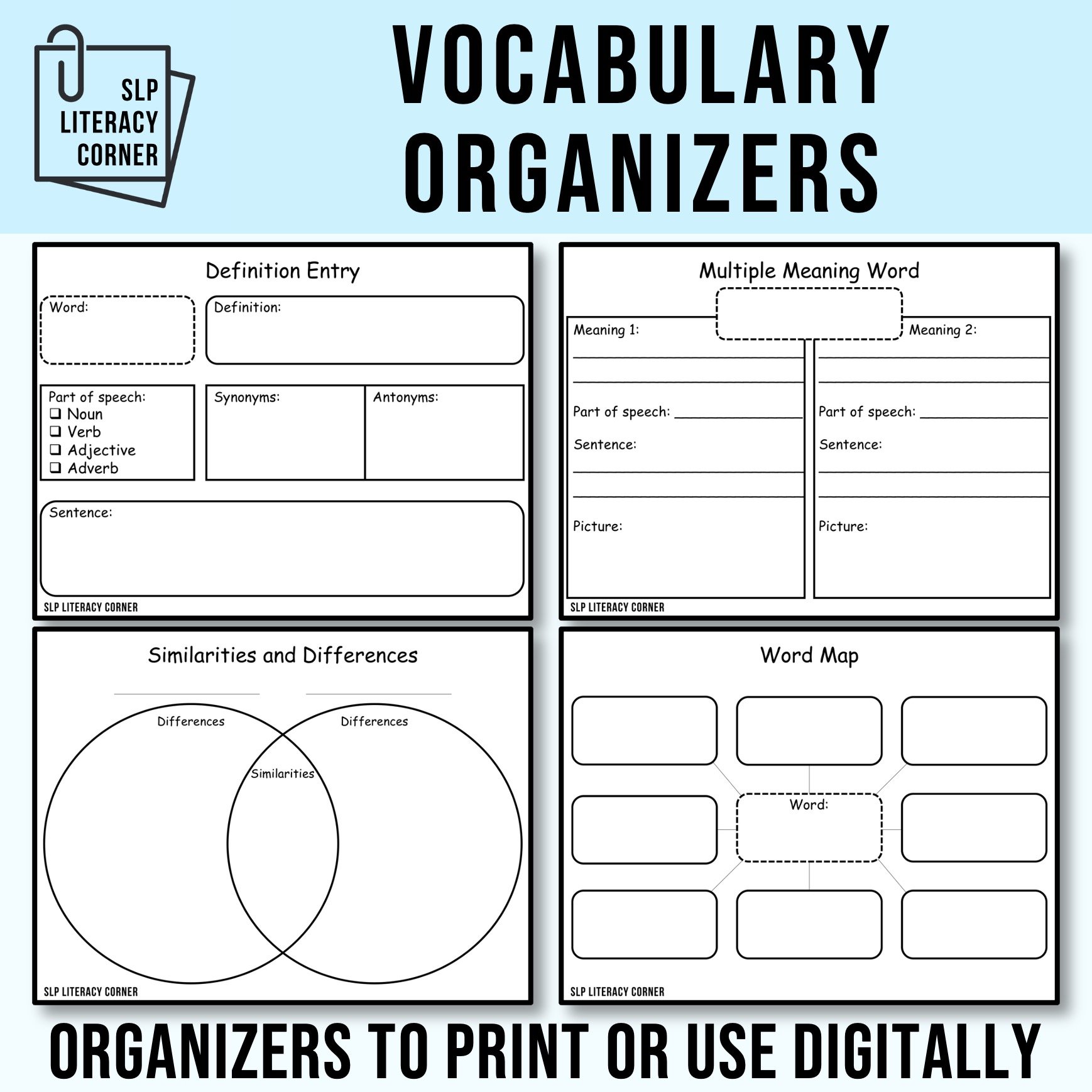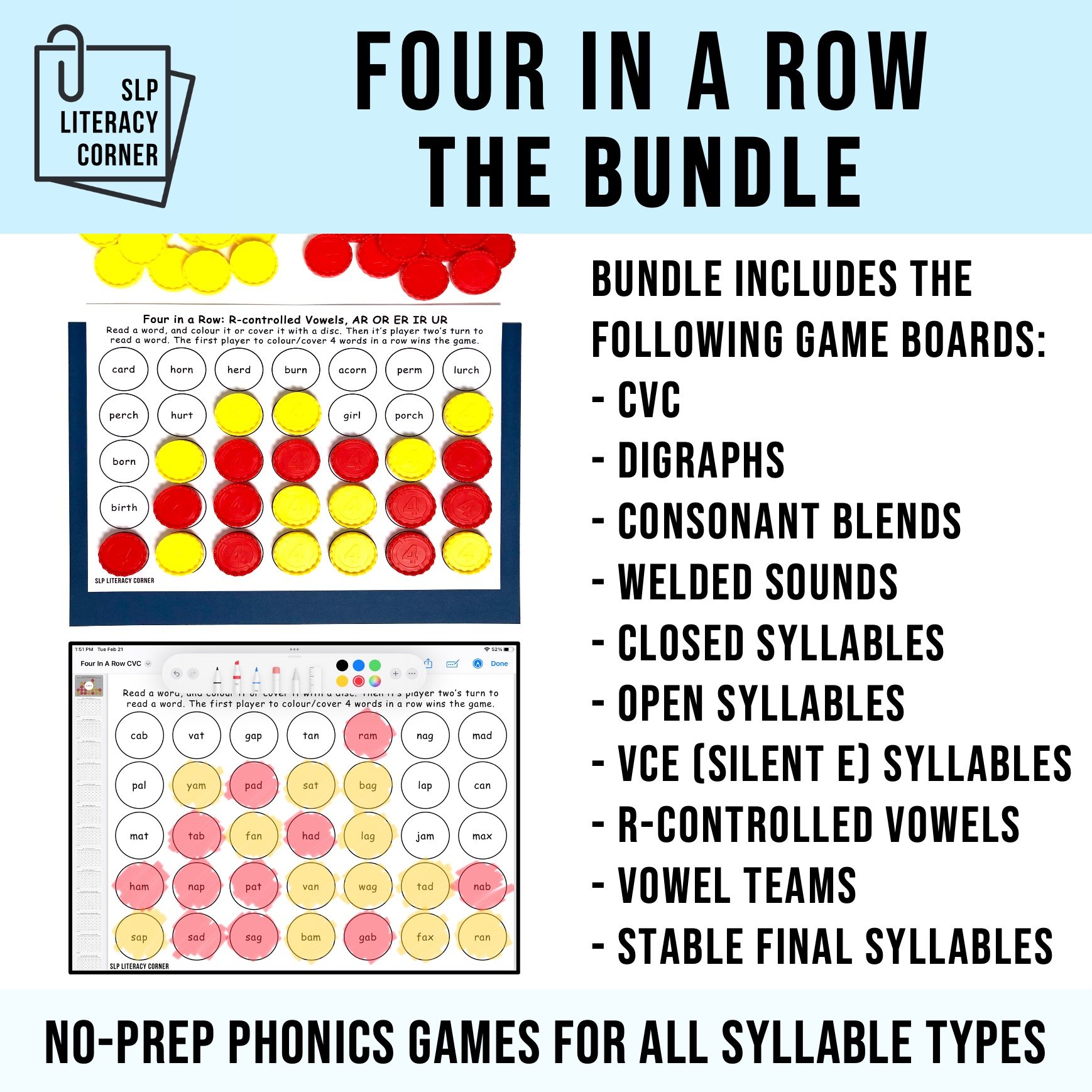Benefits of Audiobooks
Written by: Brianna Guild, MHSc SLP(C)
Date: November 9, 2023
Audiobooks are books, and listening to audiobooks still counts as a form of reading! Yes, it is a different reading experience than reading paper books, but there are many benefits to audiobooks. Here are some:
Audiobooks make books accessible to individuals who are blind or visually impaired, have dyslexia or other learning disabilities, and have physical disabilities which may impact their ability to hold physical books.
Audiobooks allow more individuals to independently access texts they might not otherwise be able to read, and keep up with their peers when it comes to both academic and pleasure reading.
Audiobooks can expose individuals to content, genres, vocabulary and sentence structure that is more advanced than an individual’s independent reading level for written text.
Considering that audiobooks may be above reading level, they are more likely to expose individuals to a broader range of vocabulary. “Encounters with new words in varied texts have the potential for improving vocabulary whether students read with their eyes or ears” - Nancy Lewis Hennessy, The Reading Comprehension Blueprint. Be sure to discuss the meaning of new vocabulary words with students!
Audiobooks provide an excellent model of reading fluency (accuracy, rate, and expression) while reading. If you are teaching students about the importance of reading fluency, I highly recommend you add audiobooks to your lesson plans, and have students’ reflect on the narrator’s reading fluency. Read more about reading fluency here.
Audiobooks can support decoding skills and pronunciation of words if the individual is able to pair listening to the audiobook and visually following along with the same text. This allows the individual to hear the new or challenging word while seeing how it is written. After reading a section, it is also beneficial to review these words, and discuss how the sounds in the word map to the spelling. Elkonin boxes can be a useful tool for this.
Audiobooks can also support story comprehension by reducing cognitive load. When individuals struggle with decoding, such as those with dyslexia, having to decode and extract meaning from the text can be a major challenge. Their listening comprehension may be stronger than their reading comprehension. Therefore, listening to the book may lend to deeper understanding and discussions.
Finally, audiobooks help bridge the gap for reluctant readers and get them interested in reading by listening to engaging audiobooks!
Looking for audiobooks? I always recommend checking out your local library!
Other alternatives include:
I always encourage my students to explore multiple ways to read: paper books, e-books, audiobooks, and pairing an audiobook with the physical book. What are the ways you and your students read?
Join the SLP Literacy Corner email newsletter to get access to exclusive free resources, such as handouts with activity ideas for your literacy lessons. Sign up here!
If you're looking for more literacy resources, check these out:
References:
Learning Ally. (n.d.). The Benefits of Audiobooks. https://learningally.org/About-Us/Why-Audiobooks.
Lewis Hennessy, N. (2020). The Reading Comprehension Blueprint: Helping Students Make Meaning from Text. Brookes Publishing.


